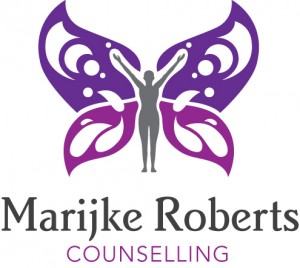This handout is designed to help you prepare for our sessions so you can get the most benefit from our work together. I will give you a few points that are important to consider.
- The major goal of therapy is to increase your knowledge about yourself, your partner and the way you interact with each other. Therapy becomes effective as you apply this new knowledge to break ineffective patterns and develop better ones.
- It is highly recommended that you create your own personal goals for what you want to learn from being in therapy, so that I can help you reach them. Making positive changes in your relationship works best when work on making changes for yourself, and not focus on how you would like your partner to change.
- My commitment will be to your relationship, and to help each of you improve your responses to each other without violating your core values and beliefs. I will not take sides, and I will not keep secrets. It is important to be open and honest to create trust.
- Think about what kind of relationship you want to build together, what kind of partner you want to be for the other.
- Be aware that to create the relationship you really desire, there will be some difficult changes and tough choices to make for each person. Like choosing how much time and effort you put into your relationship, choosing and changing how you are present for your partner, and changing and choosing how you react to each other when there are problems.
- To maximize the value from your counselling sessions, it is helpful that you come somewhat prepared and willing to look at deeper issues that may be affecting your relationship.
- The way you communicate is very important in a relationship. The three most important qualities for effective communication are respect, openness and persistence. Communication is the number one presenting problem in couples counselling. Effective communication means you need to pay attention to:
- Managing your emotional reactions, such as anger that is too intense, defensiveness, or refusal to talk.
- How you are communicating, can you explain why you are upset without blaming, for example.
- Can you identify and ask for what you want from your partner during the discussion.
- Can you take some distance and look at the problem from your own and from your partner’s point of view?
- Are you listening to understand your partner, or are you listening to respond and to prove a point?
We are all responsible for how we express ourselves, no matter how others treat us. Often we get caught in an emotional reaction, instead of a considered response. This is normal, but often not helpful. Some examples of emotional responses are: blame, disengaging, resentful compliance, denial, defensiveness.
It is hard to respond calmly when we are emotionally aroused. It is therefore a good idea to end a discussion when we sense it turning into an emotional argument, and take time out to calm down. Take some time to reflect, and realise that your partner is finding it just as hard as you to express themselves, and that both of you want to feel heard and understood. Return to the discussion when you feel calm again.
One of the main strengths in a relationship is not having less conflict, instead it is about becoming better at making up and reconnecting.
Your attitude towards change is the most important key in improving your relationship and making relationship counselling work. Can you accept that your partner’s perception and experience of your relationship is different to yours? Are you willing to listen to and understand the other? Are you prepared to accept that working towards reconnecting is more important than being right?
A last thought on relationships: Our primary relationship is a great source for us to learn about ourselves, especially when we are prepared to take ownership of our emotions, needs and the way we communicate. If we are prepared to make changes in ourselves, and learn to accept and appreciate the differences between ourselves and the other, both partners can feel seen, heard, understood and accepted. These are the ingredients to secure bonding and connection, and to create a happy and fulfilling relationship.
Marijke Roberts
Inspired by www.yourtimetotalk.net
